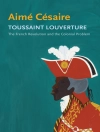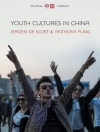Immigrant Families aims to capture the richness, complexity, and diversity that characterize contemporary immigrant families in the United States. In doing so, it reaffirms that the vast majority of people do not migrate as isolated individuals, but are members of families.
There is no quintessential immigrant experience, as immigrants and their families arrive with different levels of economic, social, and cultural resources, and must navigate various social structures that shape how they fare. Immigrant Families highlights the hierarchies and inequities between and within immigrant families created by key axes of inequality such as legal status, social class, gender, and generation. Drawing on ethnographic, demographic, and historical scholarship, the authors highlight the transnational context in which many contemporary immigrant families live, exploring how families navigate care, resources, expectations, and aspirations across borders. Ultimately, the book analyzes how dynamics at the individual, family, and community levels shape the life chances and wellbeing of immigrants and their families.
As the United States turns its attention to immigration as a critical social issue, Immigrant Families encourages students, scholars, and policy makers to center family in their discussions, thereby prioritizing the human and relational element of human mobility.
สารบัญ
Chapter 1: Introduction
Chapter 2: Families and Immigration Law
Chapter 3: Immigrant Families and Social Class
Chapter 4: Gender and Immigrant Families
Chapter 5: Generations and Immigrant Families
Chapter 6: Institutions, Policy, and Immigrant Families
Chapter 7: Conclusion
References
Notes
เกี่ยวกับผู้แต่ง
Cecilia Menjívar is Foundation Distinguished Professor of Sociology at the University of Kansas.
Leisy J. Abrego is Assistant Professor of Chicana/o Studies at the University of California, Los Angeles.
Leah C. Schmalzbauer is Associate Professor of American Studies and Sociology at Amherst College.












